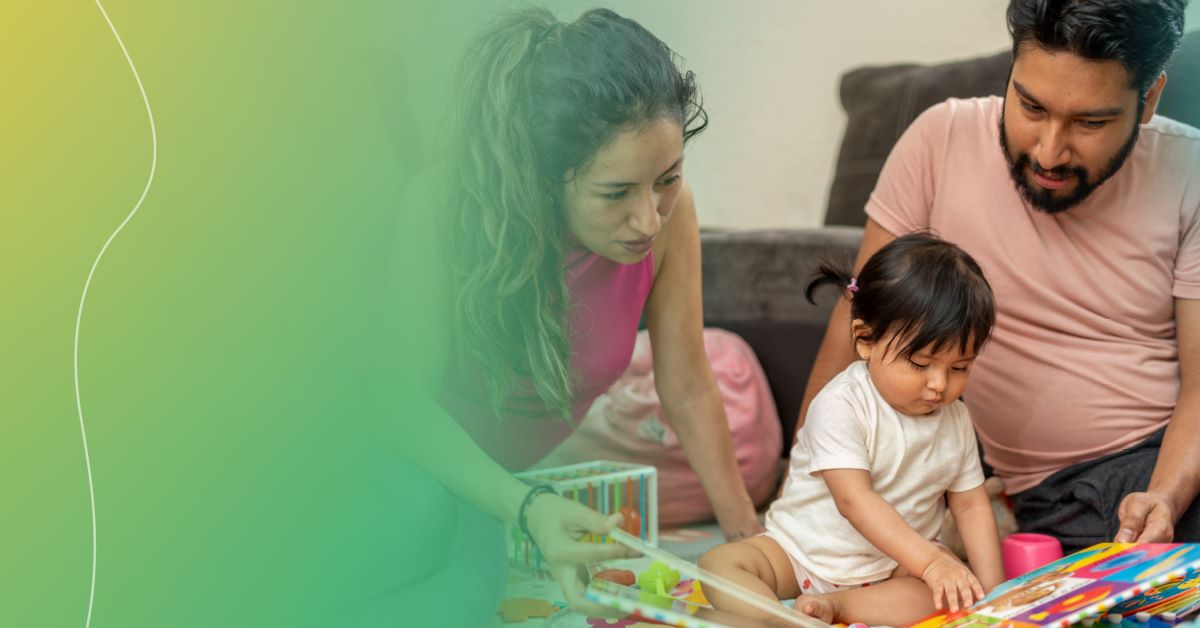“It’s always better as a team.” This phrase, shared by a participant in the Committed Parenting for Early Childhood (PPC, for its Spanish initials: Programa Parentalidades Comprometidas con la Primera Infancia) program in Uruguay, sums up a fundamental principle of parenting: when childcare responsibilities are shared fairly, everyone benefits.
During the early years of life, children need loving and enriching interactions, but they also need caregivers who feel supported and accompanied. In many households, women—especially mothers—take on the main caregiving role, which can affect their well-being and, in turn, child development. PPC aims to transform this reality by promoting shared parenting between men and women, offering tools to help families provide more equitable care.
Toward Shared and Responsive Parenting
Coordinated by the Instituto del Niño y Adolescente del Uruguay (INAU) and supported by the IDB, PPC works directly with families attending public early childhood centers across the country. The workshop series begins with an introductory meeting for facilitators, followed by eight sessions designed for caregivers.
Through a mix of presentations, reflective discussions, and hands-on activities, the workshops aim to promote responsive parenting practices that meet the needs of children aged 0 to 3, while challenging harmful behaviors and encouraging healthy development. The sessions also promote shared caregiving responsibilities, caregiver well-being, and stronger support networks.
One of PPC’s most innovative aspects is its active inclusion of fathers and other caregivers such as grandmothers and aunts. For example, participants are invited to reflect on emotional management in parenting, promoting non-violent discipline. Questions used to guide discussion include: What caregiving situation do I find most challenging? When does it happen? How am I feeling at that moment? Who can I turn to for help?
Although fewer fathers than mothers have participated (representing 15% to 30% of total attendees), their presence reflects a significant shift in how parenting roles are perceived.
Since its launch in 2018, the program has reached more than 3,700 caregivers in 214 early childhood centers across Uruguay.
Beyond Caregivers: Transformative Results for Children
The IDB led a randomized impact evaluation of the PPC workshop series, and the findings are encouraging. Here are some highlights:
- Improved early stimulation practices, such as reading, playing, or singing with children—measured through UNICEF’s Family Care Indicators.
- Reduced use of violent discipline, evaluated using UNICEF’s negative discipline module from the Multiple Indicator Cluster Surveys. For instance, the percentage of caregivers who physically or verbally mistreated their child in the past week fell from 43% to 32%.
- Better distribution of childcare responsibilities and improved maternal well-being: children spent less time under the exclusive care of their mothers, while the use of formal childcare services increased. Mothers also reported more time for leisure activities.
The benefits of these improvements extend beyond the adults—they have a direct and positive impact on the lives of children.
Parenting: A Shared Responsibility
The success of PPC lies in its comprehensive approach. It is not only about encouraging positive parenting practices, but also about fostering a cultural shift in which caregiving is seen as a shared responsibility. Evidence shows that when caregivers have support networks and spaces to reflect on their roles, parenting improves and children grow up in safer, more nurturing environments.
Programs like PPC demonstrate that transforming traditional parenting models is both possible and necessary to build more equitable households and environments that support the development of all family members—starting from early childhood.
If you would like to learn more about the insights gained from PPC’s impact evaluation, we invite you to watch the video presentation of the results.


Leave a Reply